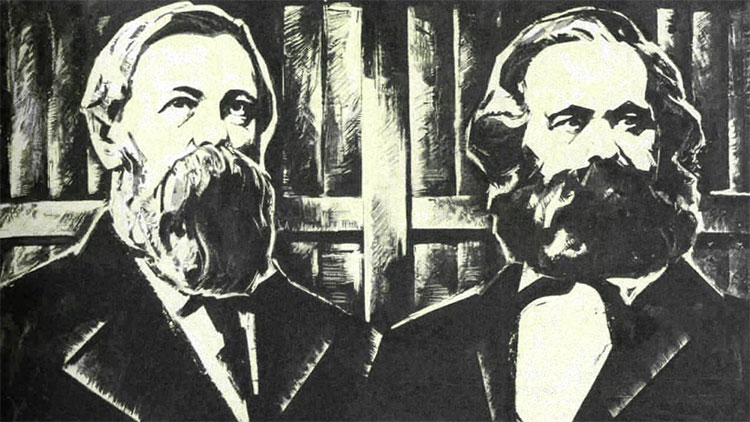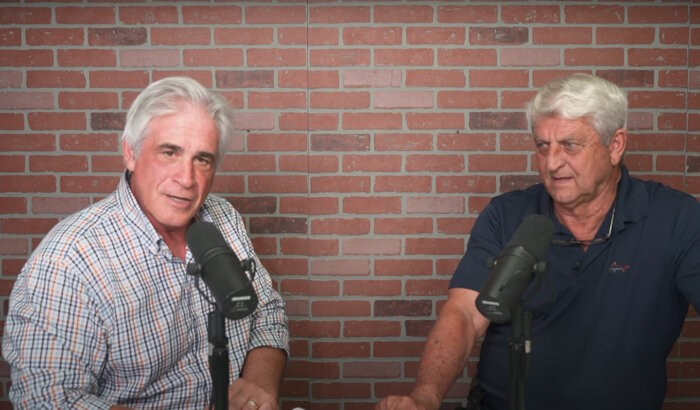Last month’s column, “A Renewed Discourse on Inequality,” commenced with a discussion of how this issue, suddenly in vogue among certain political circles, has its intellectual roots in the Enlightenment but it must now reach a much more damning conclusion: A society that stifles social mobility is neither civil, nor moral.
Picking up on Part 1 of “A Renewed Discourse on Inequality”—an attempt to examine Jean-Jacques Rousseau’s original publication in 1755 through a modern lens—it is logical to extend our view to the theories offered by Karl Marx, another controversial Enlightenment theorist. (There are those who would take issue with this characterization.) At the outset, however, one should distinguish between equality as a measurement of how a society rewards individual behavior and accomplishment from the concept of egalitarianism. An egalitarian society is entirely too utopian (or dystopian depending upon the measurement) of a concept because it fails to recognize inherent differences in human beings. To strive toward an egalitarian society is to presume that every person enjoys a similar level of wants and needs.
Unfortunately, our concept of equality is too often reduced to “redistribution of wealth,” a familiar refrain uttered by talking heads in the media. This is a poisoned narrative lazily ascribed to Marx whose philosophy is an anathema in Western circles. Mind you, this impression is not entirely without support. The ideological expressions of Marxist economic theory have failed in practice due in large part to the corrupt legacy of the 20th century communist states. But there are aspects of Marxism still relevant today with respect to inequality, particularly as they relate to war and capitalism.
Marx viewed both nation states and capitalism as destructive forces that require the suppression of labor and forcible acquisition of land and natural resources. Marx tended to steer away from discussions of morality and justice, preferring a clinical analysis of the clash between market forces under capitalism and the natural tendencies of human behavior. Nevertheless, Marx is viewed as the antihero of capitalism and is therefore considered an affront to those who cannot discern the difference between capitalism and democracy. (Another subject entirely.)
That’s not to say Marx had no natural predispositions—he made his feelings more evident to his close associates and in moments of unscripted candor. But Marx should be viewed first and foremost as a social scientist who sought to prove that capitalism, by design, would inevitably advance communism once capitalism reached the maximum exploitive potential of both labor and natural resources.
Marx was correct in predicting that unfettered capitalism advances inequality and suppresses the working classes. But he was wrong that communism was the logical evolution of capitalism. To this, it was Mao Tse-Tung, who offered a more insightful prognostication on the decay of capitalism, saying, “Humanity left to its own does not necessarily re-establish capitalism, but it does re-establish inequality.”
Regarding the aggression of capitalist nation states, Marx speculates that once a capitalist nation had reached the inevitable limits of human and environmental capacity it would be forced to seek these means of production elsewhere, and attain them by force when necessary. This is the part of Marxist theory that has been born out conclusively by the United States. To this end, Marx believed that ending war was possible if workers of the world were united beyond the artificial boundaries and political constructs of nationhood. In theory, workers who controlled the means of production would naturally supersede the economic interests of the bourgeoisie and imperial proclivities of governments.
Marxist theory holds that the animus of nations does not exist in the fraternity of the working class, and that any act of aggression would be considered a form of cannibalism and therefore antagonistic to our humanity. Likewise, our humanity is only tenable when the working class is closely linked with production.
When one considers the age during which Marx was most prolific, his logic is more enticing than it is today. Science and reason had shattered the intellectual prism that confined mankind during the middle ages. Empires had crumbled and the church was losing its grip on politics. And while technology had advanced enough for Marx to envisage the terrible consequences of an industrial society, the industrial revolution was in its nascent stages.
What was evident to Marx were the conditions created by capitalism. For the destitute and working classes, the boom-and-bust cycles of the economy were apocalyptic. Even those who briefly climbed into the middle class would be frequently thrust back into penury due to the need of the bourgeoisie to maintain wealth during the bust cycles. Ultimately, Marx’s theories would be perverted by communism and the boom-and-bust cycles under capitalism would eventually be mitigated. Typically, however, these cycles were tamed by policies more associated with socialism than capitalism, particularly in the United States, during the first half of the 20th century. This nuance has been lost to time as the American conservative movement today seeks to destroy the last vestiges of the temperate regulations instituted with fairly strict accordance to capitalist theory. Which is to say, capitalism is not mutually exclusive of regulation.
Lastly, Marx couldn’t have foreseen the rise of nationalism at the turn of the 20th century, which would render the concept of a unified global proletariat virtually impossible. Militant Jingoism and xenophobia, manufactured tools of the ruling class, would supplant the possibility of universal solidarity among workers. Continuity can be found, however, in Marx’s theory of alienation.
The underlying precept of Marx’s theory suggests that mechanization and industry would alienate the worker from the process and therefore strip any meaning from his work. As a consequence, labor would become despondent and therefore further detached from its own humanity. The capitalist, forced to pursue greater profits, would continue to degrade working conditions through increased mechanization, thereby contributing to the downward spiral of human existence.
Examining this subtext adds layers to the phrase “redistribution of wealth,” a phrase that has been purposely bastardized and cheapened by conservative propaganda.
It’s time to embark on a new discussion that takes into account the shortcomings of Marxist theory but includes the best part of its intent. It begins with the reclamation of this battered phrase in a way that tunes our collective ear to the sound of justice. An economic system that functions properly while preserving our morality does not rely on redistributing wealth; rather, it relies on creating equitable access to wealth. An economic system based upon increasing alienation is doomed to failure, particularly when the political system supports such a divide. A system that rewards work and industriousness with participation in both the political and economic process is sustainable.
When food is used for fuel while children are “food insecure,” it is not simply immoral, it’s bad economic planning. When rampant speculation causes spikes in the price of food and fuel, it punishes the lower economic classes disproportionately. “There is a crime here that goes beyond denunciating,” writes Steinbeck at the end of his Depression-era novel, The Grapes of Wrath. “There is a sorrow here that weeping cannot symbolize. There is a failure here that topples all our success. The fertile earth, the straight tree rows, the sturdy trunks and the ripe fruit. And children dying of pellagra must die because a profit cannot be taken from an orange. And coroners must fill in the certificates—died of malnutrition—because the food must rot, must be forced to rot.”
Jed Morey is the author of The Great American Disconnect: Seven Fundamental Threats to our Democracy.
www.AmericanDisconnect.com


























